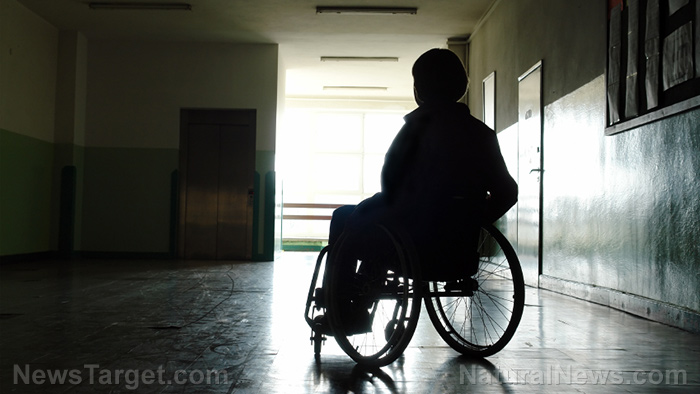
Motor Neuron Disease – causes, side effects and treatments at NaturalPedia.com
Thursday, May 24, 2018 by Ralph Flores
http://www.naturalpedia.com/motor-neuron-disease-causes-side-effects-and-treatments-at-naturalpedia-com.html

Motor neuron disease (MND), also referred to as motor neurone disease, is a collective term for a group of diseases that progressively damage the motor nerves in the brain, brainstem, and spinal cord. A person with MND will first experience it from his arms or legs, which will also affect the shoulders and other muscles. These will then become damaged and stop working eventually, resulting in a wasting of muscles. The condition may interfere with speech, chewing and swallowing, but it does not impair his touch, taste, sight, smell, or hearing.
There are various types of MNDs: These may start differently, but in later stages, these will overlap with each other.
- Amyotrophic lateral sclerosis (ALS) is the most common type of MND – it occurs in eight of 10 cases of the disease. ALS starts in the hands and feet, with muscles becoming stiff at first.
- Progressive bulbar palsy (PBP) hits muscles used for talking, chewing, and swallowing (the bulbar muscles).
- Progressive muscular atrophy (PMA) is an uncommon type of MND wherein the small muscles of the hand and feet are affected, but these do not exhibit stiffness.
- Primary lateral sclerosis (PLS) is a rare MND that weakens the leg muscles. This may also result in clumsiness in the hands, as well as speech problems.

Known risk factors and symptoms of motor neuron disease
The effects of MND vary for each person. For some, they may not exhibit all symptoms, or the rate of progression may vary as well.
- Muscle weakness and loss of muscle mass (wasting)
- Cramps and spasms in the muscles
- Stiff joints which limit the range of movement
- Speech and communication problems
- Swallowing difficulties
- Problems with saliva, where it pools in the mouth or becomes thick
- Weakened coughing
- Breathing problems (i.e., breathlessness and fatigue)
- Inappropriate emotional responses (i.e., laughing when feeling sad)
- Changes in thinking and behavior
Body systems affected by motor neuron disease
MNDs affect two sets of motor neurons – the upper and lower motor neurons. In particular, lower motor neurons affect the skeletal muscles as well as all voluntary movement.
All MNDs are progressive in nature, and complications include the following.
- Uncontrollable crying or laughing
- Difficulty speaking and swallowing
- A decline in cognitive functions called frontotemporal dementia
- Loss of lung function, which usually results in death
Food items or nutrients that may prevent or relieve motor neuron disease
Keeping a balanced diet is a key factor in managing MND. In particular, as the condition progresses, it affects eating and swallowing; therefore, energy-dense food items can cut back the time it takes for a person with MND to eat. However, the texture of the food item should be appropriate for the patient, without compromising flavor and variety. The person should also have an adequate fluid intake to support bowel function and prevent urinary tract infection.
The following food groups should be eaten every day
- Rice, cereal
- Vegetables, legumes
- Fruit
- Dairy
- Meat (including fish and poultry)
- Eggs
- Nuts
In particular, a diet heavy on plant-based food is recommended, with moderate amounts of animal food.
Treatment and management options for motor neuron disease
Currently, there is no cure for MND. At best, symptomatic and supportive treatment may help people with the condition and improve their quality of life.
Where to learn more
- Treatment with antioxidants may halt progress of neurodegenerative disease such as Parkinson’s
- Niacin, vitamin B3, may improve cognitive and physical function by preventing neurological damage
- 5 Natural Ways to Help Cure ALS
- A Complete Guide To Understanding And Living With ALS
- Some stress is good, but not too much: Mild stress is good for the brain; too much bad for the heart
Summary
Motor neuron disease (MND) is a collective term for a group of diseases that progressively damage the motor nerves.
MNDs have various types which may start differently but will overlap in later stages.
MND symptoms vary for each person.
Currently, no cure for MND exists.
Sources include:
Tagged Under: Tags: Motor neuron disease





